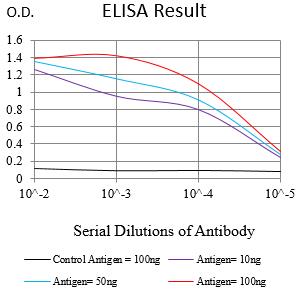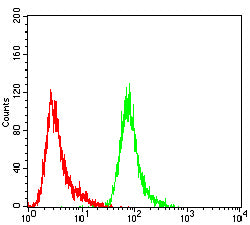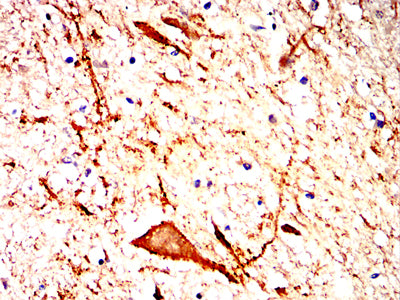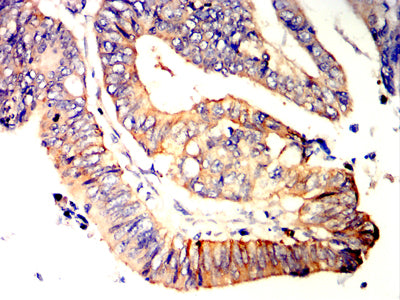



| WB | 咨询技术 | Human,Mouse,Rat |
| IF | 咨询技术 | Human,Mouse,Rat |
| IHC | 1/200 - 1/1000 | Human,Mouse,Rat |
| ICC | 技术咨询 | Human,Mouse,Rat |
| FCM | 1/200 - 1/400 | Human,Mouse,Rat |
| Elisa | 1/10000 | Human,Mouse,Rat |
| Aliases | PARK8; RIPK7; ROCO2; AURA17; DARDARIN |
| Entrez GeneID | 120892 |
| clone | 2A4B12 |
| WB Predicted band size | 286kDa |
| Host/Isotype | Mouse IgG1 |
| Antibody Type | Primary antibody |
| Storage | Store at 4°C short term. Aliquot and store at -20°C long term. Avoid freeze/thaw cycles. |
| Species Reactivity | Human |
| Immunogen | Purified recombinant fragment of human LRRK2 (AA: 300-530) expressed in E. Coli. |
| Formulation | Purified antibody in PBS with 0.05% sodium azide |
+ +
以下是3篇关于LRRK2抗体的参考文献简述(示例性内容):
1. **"Comparative analysis of LRRK2 antibodies for Parkinson’s disease research"**
- **作者**: Biosa A., et al.
- **摘要**: 比较了多种商业化LRRK2抗体的特异性,验证了其在Western blot、免疫沉淀及免疫组化中的适用性,强调了部分抗体在检测内源性LRRK2时的局限性。
2. **"Phosphorylation of LRRK2 serines 910 and 935 is a consistent marker of kinase activity"**
- **作者**: Dzamko N., et al.
- **摘要**: 开发并验证了针对LRRK2磷酸化位点(Ser910/Ser935)的特异性抗体,证明其在检测LRRK2激酶活性及帕金森病模型中的应用价值。
3. **"LRRK2 in Parkinson’s disease: current perspectives"**
- **作者**: Taymans J.M., Gloeckner C.J.
- **摘要**: 综述了LRRK2的功能及其抗体在疾病机制研究中的关键作用,包括检测突变体LRRK2的异常聚集及相互作用蛋白分析。
(注:以上为示例性文献,实际引用需以具体论文为准。)
LRRK2 (leucine-rich repeat kinase 2) is a large multidomain protein with kinase and GTPase activities, belonging to the ROCO family. It has gained significant attention due to its genetic association with autosomal dominant Parkinson’s disease (PD), particularly the G2019S mutation, which enhances kinase activity. LRRK2 is implicated in cellular processes like vesicle trafficking, autophagy, and immune response, though its precise pathogenic mechanisms remain unclear.
LRRK2 antibodies are essential tools for studying its expression, localization, post-translational modifications (e.g., phosphorylation at Ser935/Ser1292), and interactions in disease models. They are widely used in techniques such as Western blot, immunohistochemistry, and immunofluorescence to investigate LRRK2 dysregulation in PD patient samples, animal models, or cell lines. Specific antibodies targeting pathogenic mutations (e.g., G2019S) or kinase activity help evaluate therapeutic interventions, including LRRK2 kinase inhibitors.
Challenges persist in antibody specificity due to LRRK2's structural complexity and homology with other proteins. Validated antibodies are critical for distinguishing between full-length LRRK2 and splice variants, or phosphorylated vs. inactive states. Commercially available antibodies vary in performance across applications, necessitating rigorous validation. Research on LRRK2 antibodies continues to advance PD biomarker discovery and targeted therapies, bridging molecular insights with clinical translation.
×